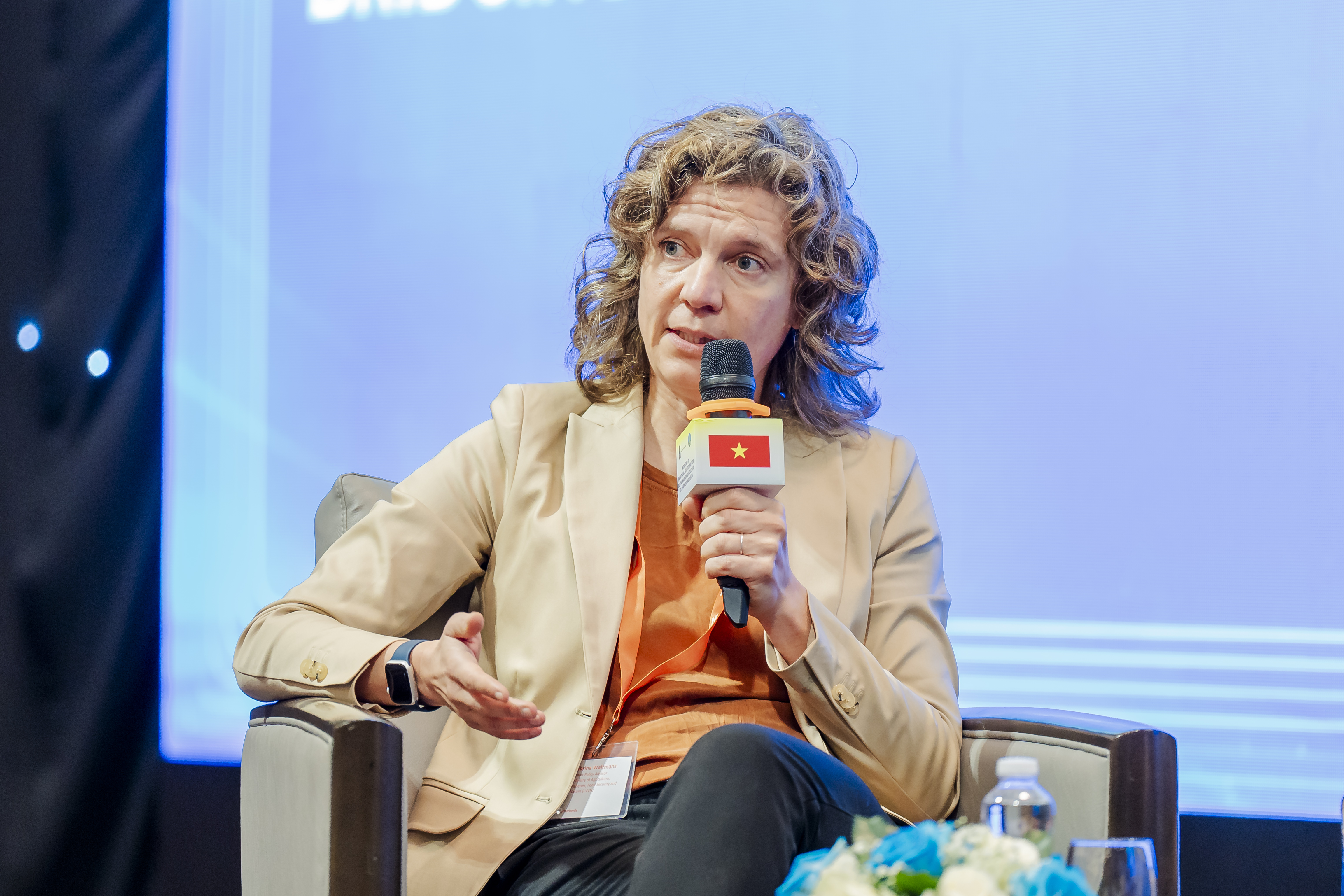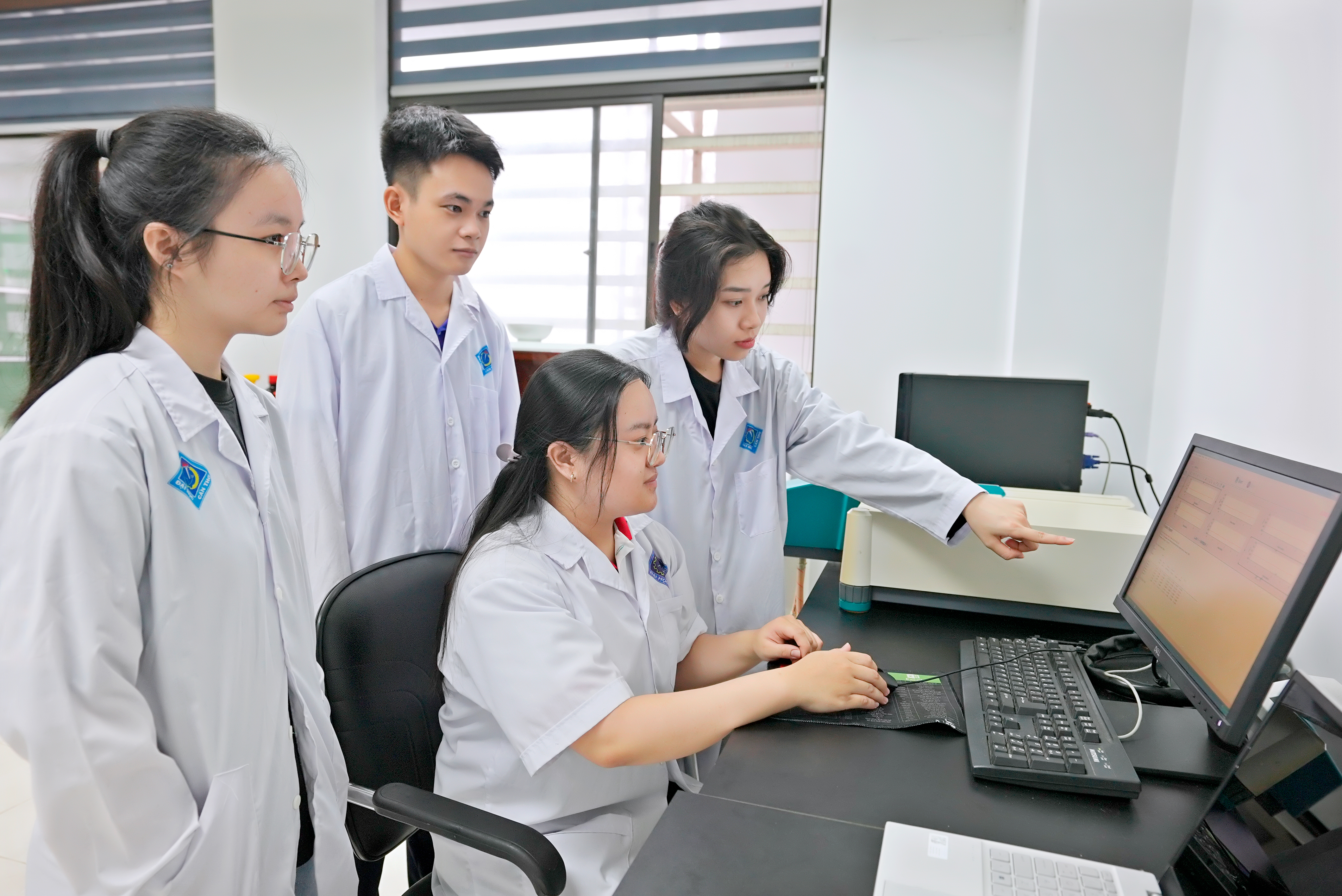Editor’s note: In this story exclusively provided by the Netherlands Embassy in Vietnam to Tuoi Tre News, Sabrina Waltmans, Senior Policy Advisor of the Netherlands’ Ministry of Agriculture, Fisheries, Food Security and Nature (Department of Strategy, Knowledge and Innovation), addresses an important issue in the agriculture sector that is happening in both the Netherlands and Vietnam, while highlighting how education can change it.
The story was edited by Tuoi Tre News for clarity, consistency, and coherence.
“Young people no longer want to work in agriculture,” Sabrina Waltmans addressed the issue that the agriculture sector in the Netherlands is facing during her trip to Vietnam late last year.
“Many perceive it is ‘dirty’ to work on the farm and the job requires so much hard work while producing little money,” she noted.
“This image is changing, but it takes time.
"In the past, university was considered the best option but now the awareness on the role of practical education and research is growing. Some people are better at theoretical approaches and others are better at practical fields.
"We need everybody in that sense.”
The Dutch government has long considered sustainable agriculture production to be very important as it is essential to feed the population and contribute to food security worldwide.
Sustainable agricultural production requires a seamless integration of knowledge, innovation, and practical practices throughout the entire system.
The Dutch education structure, with its various levels, helps ensure this.
According to Waltmans, the Ministry of Agriculture, Fisheries, Food Security and Nature maintains a close relationship with the Netherlands’ green education institutes to have an impact on societal and economic challenges, to bring enough qualified workforces and labour to the labour market, and to promote practical innovations.
In 2016, a cooperative initiative called Groenpact was created as Dutch green education institutes, the business community, and civil society organizations joined forces with the Ministry of Agriculture, Nature and Food Quality of the Netherlands. One of its main objectives is “to strengthen and renew the Dutch knowledge and innovation system.”
|
|
| Students at Can Tho University in southern Vietnam. Photo: The Netherlands Embassy in Vietnam |
All levels contribute
“In the Netherlands, we have a research university called Wageningen University & Research, which is very famous in the world of agriculture, but we also have universities of applied sciences and the TVET colleges – vocational education schools – that are really important because they are the link to practice, ” Waltmans said.
Looking at each role, Waltmans described Wageningen University & Research as a research university focusing on developing new technology and innovation.
Next are universities of applied sciences – higher education institutions offering bachelor's and master's programs with a more practical approach.
At those universities, students use the knowledge to practically develop a product, a prototype, or a service that can simplify the work of the farmer or the company.
Last but not least, the TVET (Technical Vocational Education and Training) colleges focus on implementing technology in the company or on the farm, testing whether the machine works on the farm, operating the machine, and managing technical equipment.
“It's really a chain from the first thought until the implementation at the farm level,” Waltmans said.
“Research universities do the technological development of knowledge while TVET schools focus on good craftsmanship, so the employees of companies know how to manage the equipment, how to see if everything's going right, or find solutions if there's a problem.
"And that's very important.
“Each part has something to contribute."
According to her, the universities and TVET schools play an important role in helping demonstrate that with the new techniques, agriculture can be very attractive.
“In agriculture, one can earn a good income,” she explained. “There is digitalization and you don't need to work an old-fashioned way.”
Waltman also mentioned regionally-oriented schools that are provincially based and collaborate with local farmers and companies.
Through this exchange and using new techniques, they are trying to convince the youth to reconsider what they know about agriculture.
“When I was in school and had to choose what I wanted to study, the first thing I thought was anything but not agriculture,” Waltmans recalled her personal experience.
“But now, I visit schools and universities and think if I could make that choice again, it would be really interesting to think about agriculture.
“Because I see the amazing things they are doing, like developing new varieties, new techniques to use less water because water shortage in the Netherlands is also a problem.
“It's really interesting!”
During a business forum on sustainable aquaculture in Vietnam’s Mekong Delta held in Can Tho City in late November, Waltmans also shed light on how applied research is being utilized in the Netherlands.
Practice-oriented or applied research plays a very important role, as it links the knowledge that is already existing to practice in the business environment, she explained.
“There are projects where our universities for applied sciences are involved, so that is the higher education sector directly working together with the private sector to find practical solutions to the problems and challenges that they have,” she said.
Everybody involved in such projects benefits, Waltmans noted.
“The students learn skills that are useful in industry; the researchers can use the results from their research for further research; companies become more innovative and their capacities improve; and teachers also use what they saw in the research in the curriculum,” she explained.
Like us on Facebook or follow us on Twitter to get the latest news about Vietnam!




















































